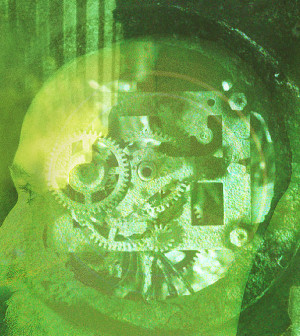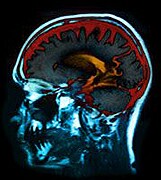- Could Your Grocery Store Meat Be Causing Recurring UTIs?
- Are You Making This Expensive Thermostat Error This Winter?
- Recognizing the Signs of Hypothyroidism
- 10 Strategies to Overcome Insomnia
- Could Artificial Sweeteners Be Aging the Brain Faster?
- Techniques for Soothing Your Nervous System
- Does the Water in Your House Smell Funny? Here’s Why
- Can a Daily Dose of Apple Cider Vinegar Actually Aid Weight Loss?
- 6 Health Beverages That Can Actually Spike Your Blood Sugar
- Treatment Options for Social Anxiety Disorder
Deep Brain Stimulation Safe for Older Parkinson’s Patients: Study


The risk of complications when implanting deep brain stimulation devices in the brains of people with Parkinson’s disease is no greater in older patients than younger ones, a new study shows.
The treatment involves placing electrodes in specific parts of the brain. The new findings should ease concerns about using the devices in patients older than 75, the Duke University researchers said.
They analyzed data from more than 1,750 Parkinson’s patients who had the devices implanted between 2000 and 2009. Of those patients, 7.5 percent had at least one complication within 90 days of the surgery. Complications included wound infections, bleeding, pneumonia and pulmonary embolism.
However, the overall risk of complications did not significantly increase with age, the researchers reported Aug. 25 in the journal JAMA Neurology.
Older patients were more likely to develop pneumonia compared with younger patients. However, pneumonia is somewhat common among older people who have surgery, noted study senior author Dr. Nandan Lad, director of the Duke Neuro-Outcomes Lab in Durham, N.C.
“Parkinson’s disease is one of the most common movement disorders and it primarily afflicts older people,” Lad said in a Duke news release. “For many, movement disorders can be managed with medications. But as the disease progresses — and as people age — tremors and side effects of medication, including involuntary muscle movements, are less controllable. So it’s this older population for whom DBS could be quite beneficial.”
“Our study should help patients and families considering DBS as a potential treatment option for managing the symptoms of Parkinson’s disease,” Lad said. “It also provides guidance to surgeons about the risks of common complications among older patients.”
More information
The U.S. National Institute of Neurological Disorders and Stroke has more about deep brain stimulation for Parkinson’s disease.
Source: HealthDay
Copyright © 2026 HealthDay. All rights reserved.










